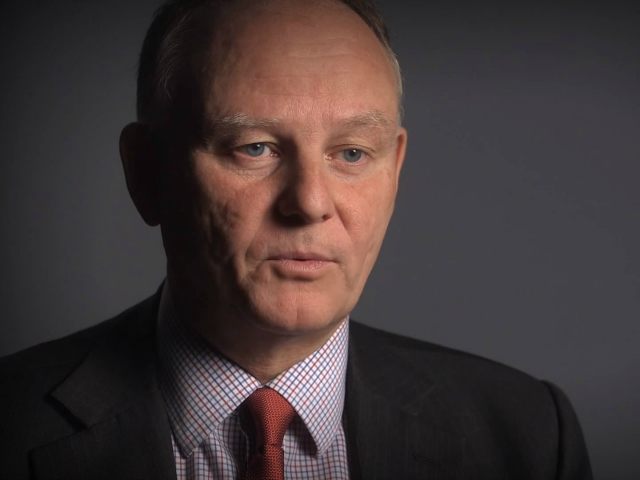The international coalition made a mistake by dethroning the Taliban regime in response to the 9/11 attacks on the United States and should have instead only focused on al-Qaeda, argues the Canadian commander who led NATO into southern Afghanistan nearly a decade ago.
He made those comments on Wednesday during an interview with The Canadian Press to mark the 10th anniversary of Canada’s military deployment into the southern Afghan province of Kandahar, known as the birthplace of the Taliban.
In 2006, retired major-general Dave Fraser commanded both the Canadian military and NATO’s expanded mission to extend the authority of former Afghan president Hamid Karzai beyond the capital of Kabul.
The U.S-led NATO coalition invaded Afghanistan in October 2001 following the attacks on the United States on September 11 of that year. By December 2001, the international force had toppled the Taliban regime for providing refuge to al-Qaeda and its leader Osama bin Laden.
“We thought, naively, that regime change was the solution to the problem,” the retired commander told The Canadian Press.
The West did not realize the power vacuum it had left “created for ourselves a 30- or 40-year problem” in not only Afghanistan, he added, but throughout the Middle East.
“Looking backwards, I would have actually left the Taliban government in power and said (to them): ‘Stay out of the way. We’re here to find Al Qaeda. And as long as you stay out of the way, the special forces will go in there, they will do what is necessary to get Al Qaeda and we will leave,’” declared Fraser. “Had we done that, we wouldn’t be where we are today.”
He went on to argue that the West made the problem worse by removing the Taliban.
“We compounded the problem by getting rid of the Taliban regime,” said Fraser. “I didn’t like the Taliban regime, but why did we go there in the first place? It was because of Al Qaeda. Not because of the Taliban.”
However, the Taliban had been accused of providing sanctuary to al-Qaeda and its leader bin Laden prior to the 9/11 attacks.
The former commander also noted that the West has continued to repeat the same mistakes it made in Afghanistan.
“We repeated it in Iraq,” he argued. “In Libya, we didn’t put any ground troops in and we created an even bigger mess because there’s no government whatsoever in Libya. We went back into Iraq and now for the very first time the international community is beginning to appreciate that regime change is not the solution — hence why we’re not pushing to do a regime change in Syria.”
Although the West has insisted that Syrian dictator Bashar Assad should step down, it has not forced him out of power during the ongoing civil war in that country that began in March 2011.
Fraser’s comments came just a day after it was announced the Afghan government is expected to resume direct negotiations with the Taliban next week in Pakistan, aimed at reviving peace talks that broke down last summer after it was revealed that Mullah Omar, the terrorist group’s leader, had died in 2013 — an event that was intentionally covered up by the Taliban.
During Canada’s 12-year mission in Afghanistan that ended in March 2014, at least 158 soldiers, one diplomat, one journalist and two civilian contractors from Canada were reportedly killed, many of them in battles with the Taliban.
According to Canada’s Department of National Defense and the Canadian Armed Forces, at least 635 Canadian service members were wounded in action and 1,436 suffered non-battle related injuries while deployed in Afghanistan.
Fraser’s comments were described by The Canadian Press as “unexpected and surprising, not the least because they come from a soldier whose troops were the first to face a Taliban resurgence in south; someone who championed the combat mission’s aims and articulated the goal of bringing stability to the ungoverned region.”
The majority of soldiers killed and wounded in the Afghanistan war have been from the U.S. — 2,236 fatalities and 20,120 injured so far, including 21 deaths after President Obama declared an end to the U.S. combat mission in the country and took away the American military’s authority to offensively attack the Taliban at the end of 2014.
On November 16, 2001, the Guardian reported, “The US-led coalition scored two stunning successes in its mission in Afghanistan yesterday when the Taliban leader, Mullah Mohammad Omar, was reported to have surrendered control of Kandahar and it emerged that Osama bin Laden’s closest friend and military planner had been killed in a bombing raid.”
“The apparent loss of Kandahar, the southern stronghold and spiritual heart of the Taliban, marks the final collapse of their formal rule in Afghanistan… Just as damaging to Taliban and al-Qaeda morale, Mohammed Atef, who as the military leader of al-Qaeda is believed to have masterminded the September 11 attacks, is said to have died during a bombing raid on Kabul three days ago,” it added.

COMMENTS
Please let us know if you're having issues with commenting.